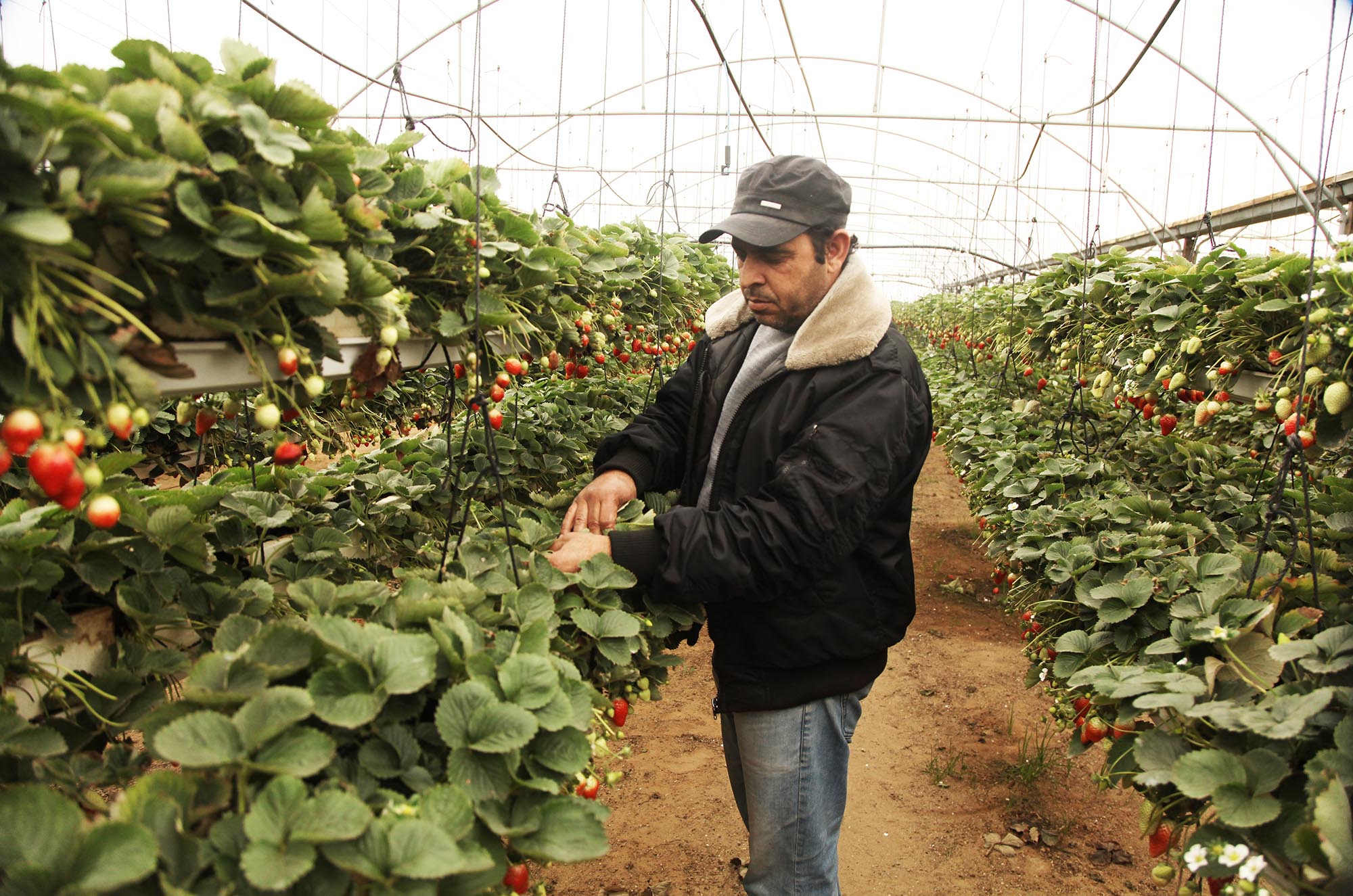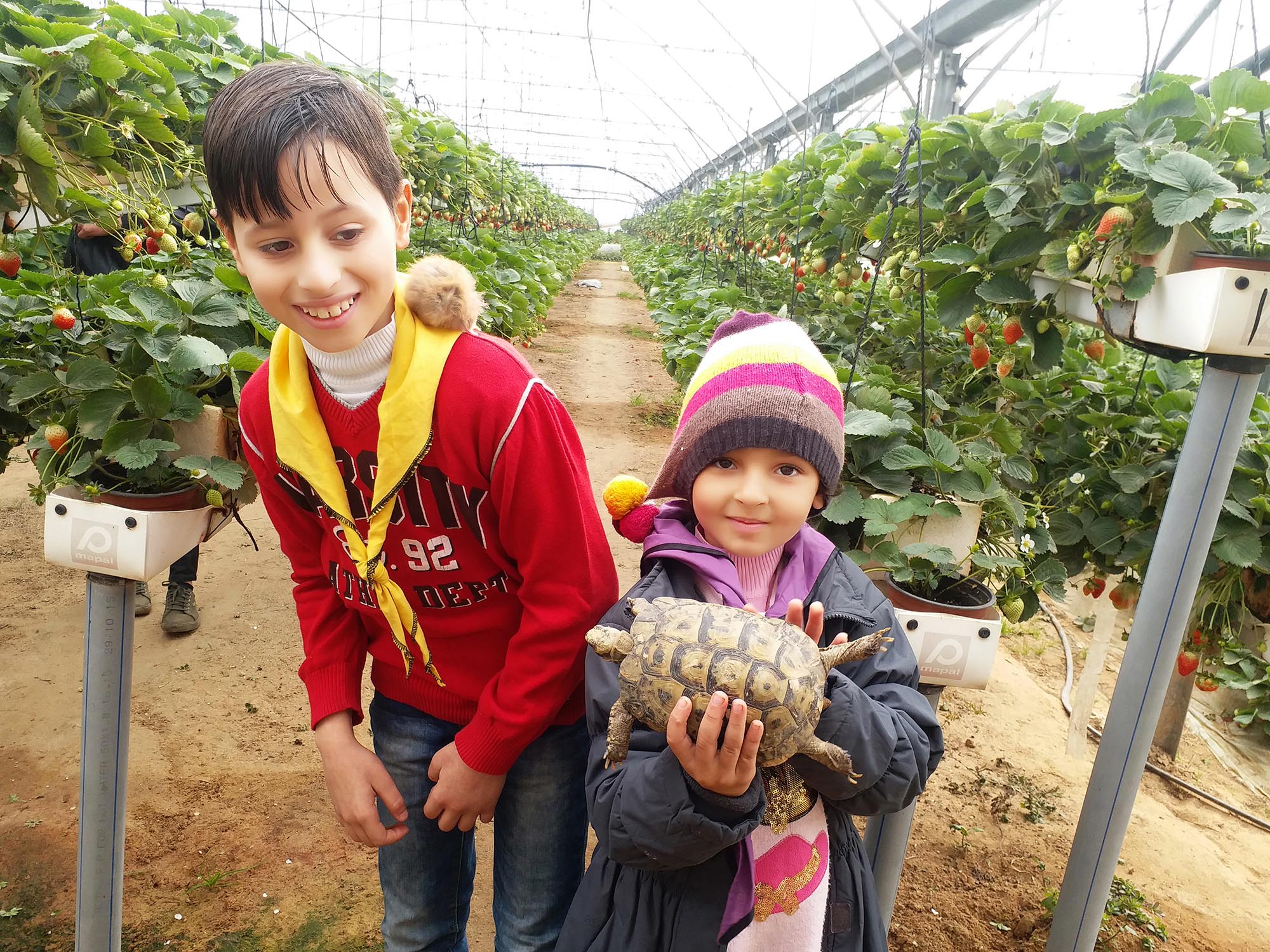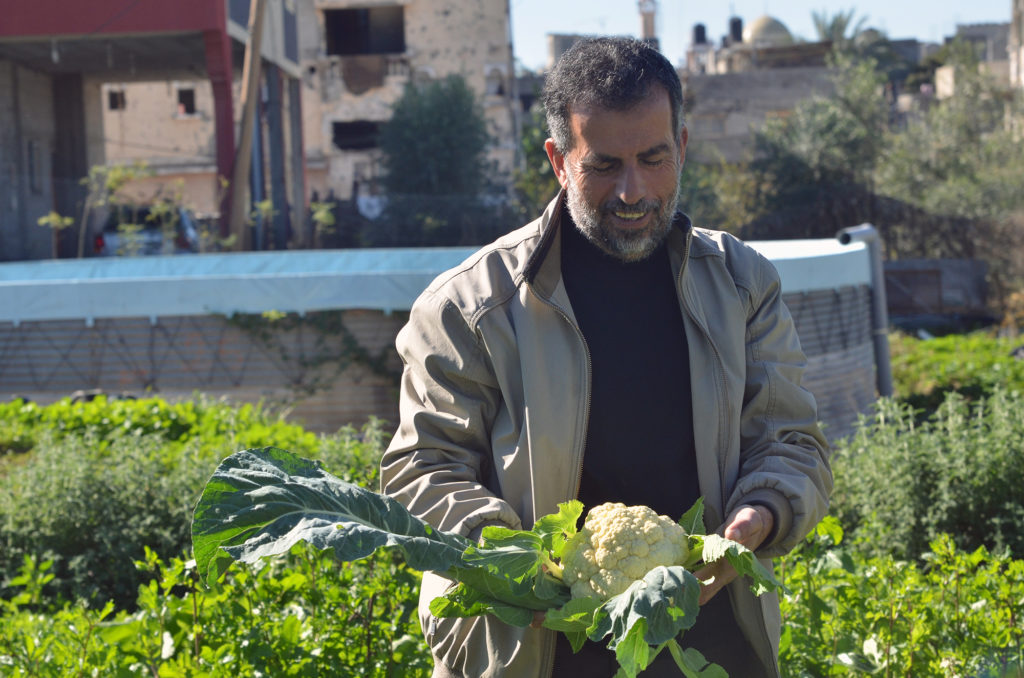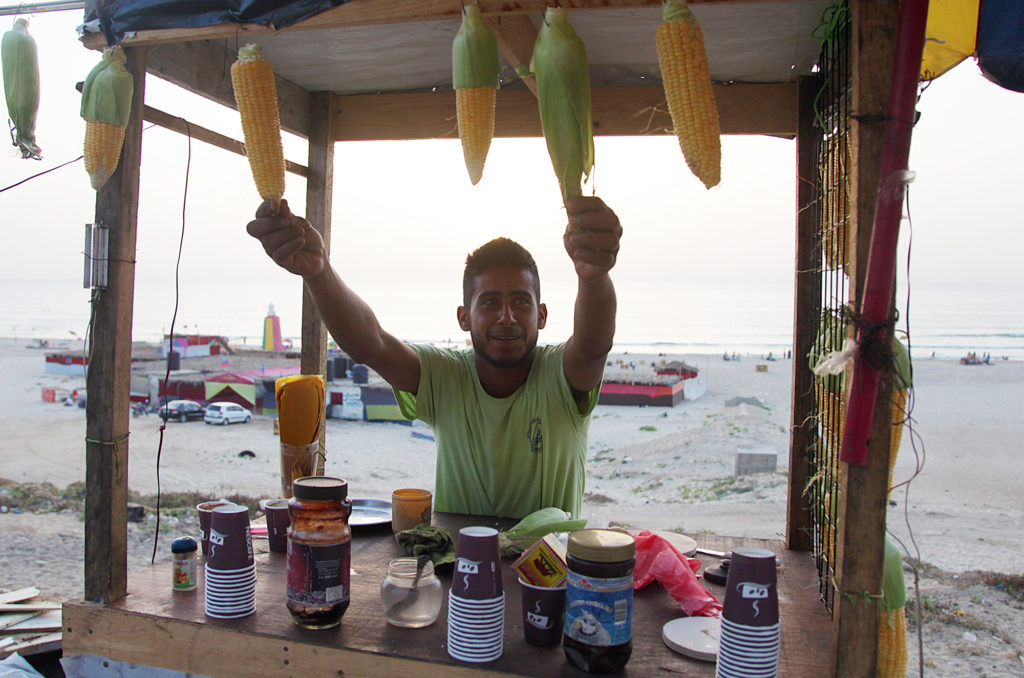Jan, 2018
Akram is a farmer from Beit Lahia, where the soil is most fertile and the fruits are most bountiful. He has loved farming ever since he was a child, when he join his father picking fruits and vegetables from the fields.
When Akram’s farm was selected for global standards tests, he was delighted. “I immediately thought that if my strawberries pass the tests, I’ll be able to export them and make good income,” he says. "The local prices are low."
Akram says when the strawberry farming season in Gaza approaches, he and his fellow farmers like to make the best out of their "red gold." When he began his pilot project in 2015, the climbing strawberries captured people's attention. “As our life is always centered on the opening and closure of borders, I was grateful for the internet," he says. "I could read, search or watch videos to learn more about this particular type of farming.”


“I noticed how curious people are to see how strawberries grow. So, after I received some advice from Naser Qadous [an Anera agronomist who visited Gaza from the West Bank], I opened this site for visitors and for school trips,” he said.
Akram is also applying the concept of organic farming by using organic compost and bees during the blooming season. “In my best times, I would send two tons to the local market and one ton for exports,” he says.
The idea of opening up the farm to the public came about when a family with their four children came once to the farm and asked to buy a box of strawberries. The children loved seeing the strawberries. Since then, Akram has received families from all over the place who love both the strawberries and the juice they produce.
Despite a myriad of challenges, farmers still think that last year’s profits were better than the year before. According to farmers in the neighborhood, the lands allocated for growing strawberries decreased from 618 acres in 2006 to 123 acres in December 2017. “It was an unexpected situation! We were all skeptical about the future of these plants.”
Access to Roads
Lack of proper infrastructure and sudden damage to irrigation pipes or water wells are just some of the daily challenges for farmers in this area. “During winter, this road used to be muddy. Holes would collect rain water and prevent trucks from coming in and out, causing us lot of delays and damage to crops,” he says. In past years, farmers were unable to access their produce or export it to other areas. “We used to pay 1000 NIS (~$300) to empty the potholes of water and to dry the road after storms, so we could get back to our work the next day,” he added.
Anera engineers recently rehabilitated the road by adding thicker layers of soil and mixing crushed stones with base aggregates.


Recently, because of the rehabilitated road, a school bus of girl and boy scouts made a trip to the farm to see firsthand the strawberries. They also saw a turtle and a hamster rescued by the farm owner after he found them on the land and housed and fed them in a birdcage. The farm has proven to be a conducive and creative environment for children.
The Agricultural Roads Rehabilitation project in Deir EL Balah and Beit-Lahia is part of the Rural Recovery Program, intended to help rural communities in Gaza under the Islamic Relief USA agriculture funded project.


